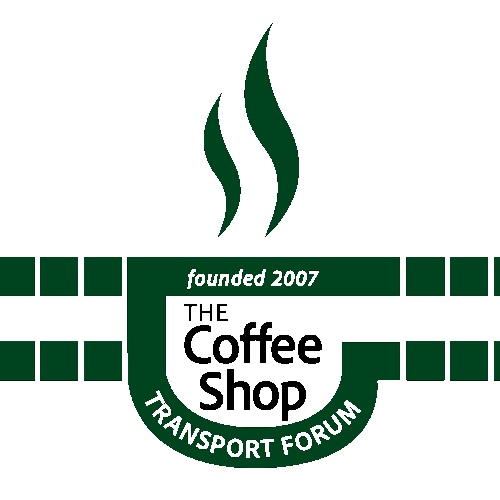| Re: Suggestions from Campaign for Better Transport for the budget Posted by Chris from Nailsea at 04:42, 29th November 2025 |     |
Rachel from Accounts is having a bad day in the office: from the BBC, see 'Reeves on brink' and 'Chancer of the Exchequer'

| Re: Suggestions from Campaign for Better Transport for the budget Posted by Witham Bobby at 09:42, 10th November 2025 |     |
The very notion that you can tax a nation into prosperity is laughable
Except it's not funny. We have had years of governments that think exactly this
| Re: Suggestions from Campaign for Better Transport for the budget Posted by Chris from Nailsea at 13:35, 9th November 2025 |     |
| Re: Suggestions from Campaign for Better Transport for the budget Posted by ChrisB at 12:37, 9th November 2025 |     |
I meant that you wouldn't have called a male Chancellor of the Exchequer 'Bob from accounts'.....
| Re: Suggestions from Campaign for Better Transport for the budget Posted by Chris from Nailsea at 12:24, 9th November 2025 |     |
Not from me.

I think Rachel Reeves is in an unenviable position, with the press and pressure groups writing her Budget speech for her, before she has a chance to reply.
| Re: Suggestions from Campaign for Better Transport for the budget Posted by ChrisB at 11:46, 9th November 2025 |     |
Slightly misogynistic?
| Re: Suggestions from Campaign for Better Transport for the budget Posted by Chris from Nailsea at 23:17, 7th November 2025 |     |
It's encouraging to see that they have sent that to Rachel from Accounts.
(Thanks, TaplowGreen: I personally found that nomenclature very funny.
 )
)| Suggestions from Campaign for Better Transport for the budget Posted by grahame at 17:03, 7th November 2025 |     |
Shared with me by the chair of the Melksham Environment Group, by email to her from the Campaign for Better Transport
Also at https://bettertransport.org.uk/blog/will-the-budget-tackle-transport-poverty/
A Budget for public transport
Hello Shirley
After 14 years of fuel duty freezes and a five-year fuel duty cut, transport costs are still keeping five million people below the poverty line. Doggedly clinging to the cut in fuel duty - which has primary benefitted richer households and fuel retailers - whilst simultaneously prioritising road investment will not change this. That's why we have written to the Chancellor to urge her to use the forthcoming Budget to rebalance transport taxation and prioritise public transport to help hard-pressed households and provide the sustainable economic growth we need.
Ending the fuel duty cut
With the cost of petrol and diesel now much lower than when the "temporary" 5p fuel duty cut was introduced five years ago, allowing the cut to expire would recoup £2.6 billion a year in lost revenue. Reinstating the annual inflation-linked fuel duty rise would raise a further £1.6 billion in the first year alone. The impact on fuel bills for individuals would not be large, and the additional income could be invested in infrastructure improvements and public services to the benefit of millions of households.
Introducing a per-mile charge for electric vehicles
As more people switch to electric vehicles, revenue from fuel duty will plummet. The Chancellor should set out a process and timetable for introducing a simple, per-mile charge for EVs. This would be fair, and avoid a looming budget black hole. The charge should be low, so that it's still cheaper to drive a cleaner car.
Closing the aviation loophole
The Chancellor could also choose to close the loophole that provides airlines with tax-free fuel by introducing a kerosene tax at 33p a litre. Even after excluding 'lifeline flights' (those from remote islands in the UK to the mainland), this new tax would still raise £594 million per annum for the exchequer. Introducing a new ‘super’ rate of Air Passenger Duty – set at ten times the current higher rate – for all private jet passengers and charging VAT on all private jet flights would raise a further £1.5 billion to £2 billion a year.
Prioritising public transport
Public transport investment brings a much higher return than investment in roads. Boosting investment in local bus services and fare concessions would help tackle transport poverty and improve people's life chances. Cancelling the 2026 rail fare increase and speeding up fares and ticketing reforms would make trains more affordable and encourage more people to use them. We also want to see the Government commit to key rail infrastructure improvements.
With every Budget there are hard decisions to be made. The politics of increasing fuel duty are not easy, but nor are any of the other fiscal choices available to the Government. Transport investment is essential to economic growth, but not all transport investment is equal. Prioritising public transport investment will ensure we get sustainable economic growth which doesn't cost the earth.
Goodbye till next time
Silviya Barrett, Director of Policy & Campaigns
Campaign for Better Transport
Hello Shirley
After 14 years of fuel duty freezes and a five-year fuel duty cut, transport costs are still keeping five million people below the poverty line. Doggedly clinging to the cut in fuel duty - which has primary benefitted richer households and fuel retailers - whilst simultaneously prioritising road investment will not change this. That's why we have written to the Chancellor to urge her to use the forthcoming Budget to rebalance transport taxation and prioritise public transport to help hard-pressed households and provide the sustainable economic growth we need.
Ending the fuel duty cut
With the cost of petrol and diesel now much lower than when the "temporary" 5p fuel duty cut was introduced five years ago, allowing the cut to expire would recoup £2.6 billion a year in lost revenue. Reinstating the annual inflation-linked fuel duty rise would raise a further £1.6 billion in the first year alone. The impact on fuel bills for individuals would not be large, and the additional income could be invested in infrastructure improvements and public services to the benefit of millions of households.
Introducing a per-mile charge for electric vehicles
As more people switch to electric vehicles, revenue from fuel duty will plummet. The Chancellor should set out a process and timetable for introducing a simple, per-mile charge for EVs. This would be fair, and avoid a looming budget black hole. The charge should be low, so that it's still cheaper to drive a cleaner car.
Closing the aviation loophole
The Chancellor could also choose to close the loophole that provides airlines with tax-free fuel by introducing a kerosene tax at 33p a litre. Even after excluding 'lifeline flights' (those from remote islands in the UK to the mainland), this new tax would still raise £594 million per annum for the exchequer. Introducing a new ‘super’ rate of Air Passenger Duty – set at ten times the current higher rate – for all private jet passengers and charging VAT on all private jet flights would raise a further £1.5 billion to £2 billion a year.
Prioritising public transport
Public transport investment brings a much higher return than investment in roads. Boosting investment in local bus services and fare concessions would help tackle transport poverty and improve people's life chances. Cancelling the 2026 rail fare increase and speeding up fares and ticketing reforms would make trains more affordable and encourage more people to use them. We also want to see the Government commit to key rail infrastructure improvements.
With every Budget there are hard decisions to be made. The politics of increasing fuel duty are not easy, but nor are any of the other fiscal choices available to the Government. Transport investment is essential to economic growth, but not all transport investment is equal. Prioritising public transport investment will ensure we get sustainable economic growth which doesn't cost the earth.
Goodbye till next time
Silviya Barrett, Director of Policy & Campaigns
Campaign for Better Transport










